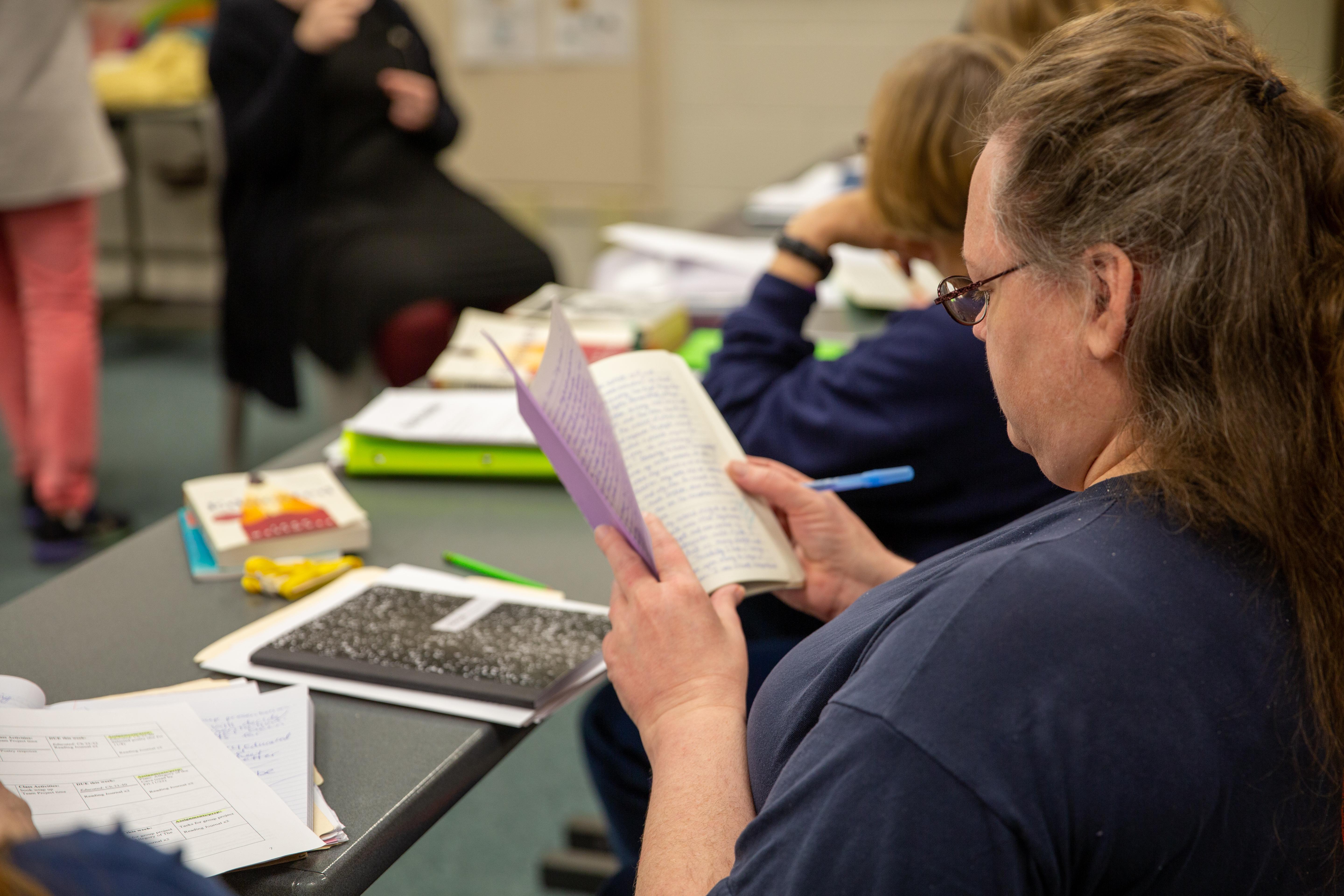
A student in PSU's "Metamorphosis" class at Coffee Creek Correctional Facility looks through a journal from October 2019.
/ OPB
In Oregon’s men’s prisons there are a few educational opportunities available. But for those incarcerated at the Coffee Creek Correctional Facility, there were no college classes offered until 2019. That’s when Portland State University associate professor Deb Arthur worked with the Department of Corrections to bring classes to the state’s only women’s prison. The Higher Education in Prison program began with a one-year, 15-credit, interdisciplinary course designed to meet PSU’s first year general education requirements. But since then, she told OPB’s “Think Out Loud,” the program has expanded significantly.
“We’ve brought in over $300,000 in the past couple of years to run the program. We’ve offered 16 courses. We now enroll about 75 students,” she says. “It has really, really grown, which is beautiful.”
One of the biggest leaps forward for incarcerated adults to access college more broadly in the future came at the end of 2020, when Congress lifted the ban on Pell grants for incarcerated students, effective in 2023.
“I literally jumped for joy when that happened,” says Arthur.
Lanelle Rowe took PSU college classes while serving more than 10 years for manslaughter. She says that up till 2019, the only continuing education was a Cosmetology program, which she completed. But taking classes toward a college degree was a completely different experience.
“You know I wanted to explore my future upon release and be able to enter the world not only with job skills but also, you know, build my world view,’ she says. “I had more input. I felt I was more part of the world and community outside as opposed to just my world on the inside.”
For its part, the Oregon Department of Corrections says the majority of incarcerated people want to better themselves and prepare for their release. The DOC is working with colleges and universities starting this spring to bring back inside college classes.
This year Oregon lawmakers passed a bill allowing online college courses at Coffee Creek Correctional Facility as well as the Snake River Correctional Institution.


